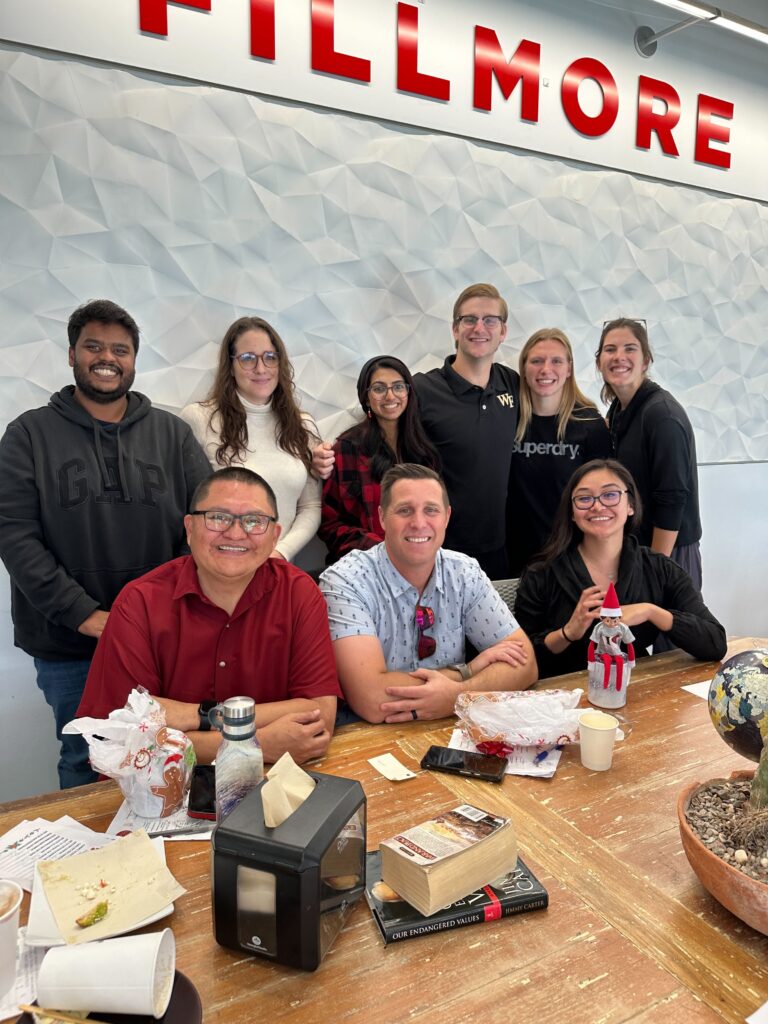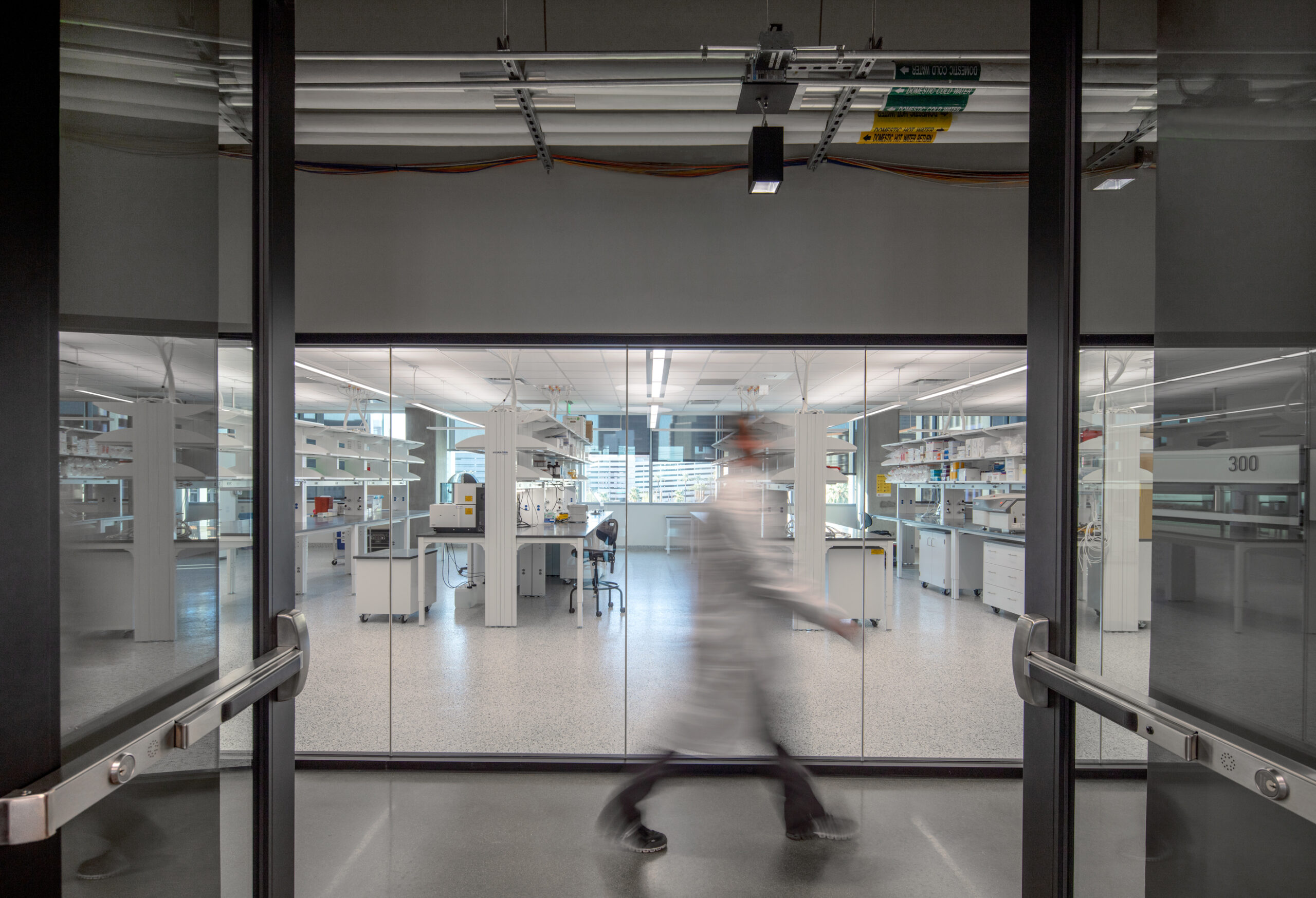PBC Research Highlights are an opportunity for Phoenix Bioscience Core researchers to share the incredible work they are doing to improve health outcomes in our community. If you have a research highlight you would like to share, please reach out!
The following is a conversation with Matt Buman, who is currently a professor in the College of Health Solutions at Arizona State University. He has been with ASU for 11 years. His research involves better understanding the 24 hour cycle including sleep, sedentary behavior, and physical activity to create behavior interventions that will result in better health outcomes. Currently, he is working on various projects to decrease sitting in the workplace using standing desk wellness programs and decrease recreation sedentary screen time in adults. All these use the most cutting edge movement and sleep measurement devices and innovative technologies.

What is the Stand & Move at Work program and how is ASU involved?
Stand and Move at Work is an evidence-based program for workplaces that encourages employees to improve their health through standing more and moving more at work. It’s a collaboration that has been ongoing between Arizona State University College of Health Solutions researchers and the University of Minnesota. In an earlier study that took in 24 worksites (more than 630 employees in total) across the greater Phoenix and Minneapolis/St Paul metropolitan areas, we showed that the Stand and Move at Work program reduces sitting time at work and increases standing and moving throughout the day. These changes lasted a remarkable 24 months, and these changes led to improvements in productivity, workplace satisfaction, reduction in musculoskeletal symptoms, and reduction in risk for cardiometabolic disease (among those that were already at risk). Our current research is investigating the implementation of this wellness program.
What is a typical “day” in the research of this work?
Our team spends its days supporting workplaces across the country to implement the Stand and Move at Work program, and to evaluate the entire implementation process. To assess whether the program actually increasing standing and moving at work, we use a thigh-worn sensor called an activPAL. This is a very accurate, research-grade version of a Fitbit that can tell with great accuracy when a person is sitting, standing, and moving. Our team prepares these devices for employees, analyzes the data from these devices, and then sends customized reports to the employees. We are also always working to improve the program and update the web portal that workplaces use to implement the program.
What are the desired research outcomes for the program?
We have learned that employees and employers want to do what they can at work to improve their health, but often lack tools to do this in a sustainable way while also maintaining the bottom line. The goals of this research is to better understand how a program that we have shown is effective for improving health in the workplace, and being cost-beneficial, can best be implemented in a broad range of different types of workplaces.
How does the greater community benefit from this type of work?
The best part of the Stand and Move at Work program is that its both a program that worksites can take and use, and its also a funded research study by the Nationals Institutes of Health. This means we can offer the program for free to worksites in the community, while also evaluating the implementation of the program so other worksites in the future can benefit from a more streamlined set of strategies for implementation. This study can improve the health of office workers everywhere! Everyone who finds themselves at a desk for the majority of their work day is at risk for chronic health conditions. Understanding how to implement this research will open up opportunities in the future for this research to be packaged into a wellness program that can be customized for every worksite.
On a larger level, how does working in an environment like the Phoenix Bioscience Core benefit your research?
Our research is very translational. We study sedentary behavior (i.e., sitting) at work at all levels across the translational spectrum. We are interested in the basic physiology of prolonged sitting, the epidemiology of workplace sitting (including how it has changed throughout the COVID-19 pandemic), and how we can develop and test interventions that reduce sitting in the workplace. PBC provides an ideal environment to do all of this given its diverse resources, amazing collaborators, and great facilities. and what it does to the bodyWorking at PBC is a benefit to our research on so many levels.
What else should we know about your research and focus on the PBC?
Sitting is ubiquitous in our society, and there are additional health benefits that can be gained beyond just regularly exercising each day. This includes standing more and moving more throughout the day. This includes what you do at work, but also involves time spent watching television, time spent commuting, and lots of little things that happen throughout the day. Health is so much more than just going to the gym after work but also making small changes in our daily routines that will have large impacts. The laboratory and translational science that happens at PBC is helping to inform the behavioral interventions we are creating.
How can people get involved in the research?
Everyone can have a role in our research! If the Stand & Move at Work study sounded like something your office needs, sign up for more information on our page! If that study doesn’t sound like your office for any reason but it sounds like an office you know, use the resources we have to spread the word! In the same way all our research is translational and far reaching, this study is recruiting nationally. More about our lab and our research can be found on our website 24hbl.net or by contacting me [email protected].

